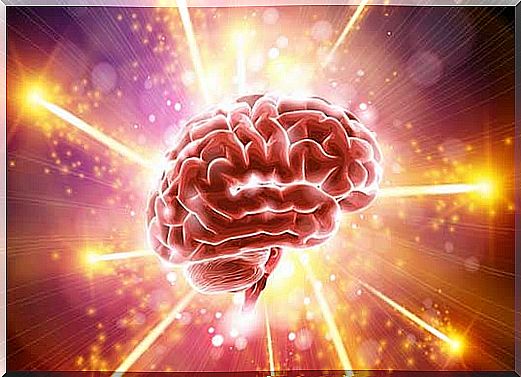Do You Know What Major Depression Is Related To?

Major depression is associated with inflammation of the brain, according to a new study by Canadian researchers, which has been published in the Archives of General Psychiatry. These findings have important implications for the development of new treatments for depression in the future.
But what is major depression? It is a type of depression that seems to have no solution or end. It is not something fleeting, it is not a state of sadness and utter desolation that seems to be resolved in some way. Nothing works. Therefore, today we are going to discover what happens in this type of depression so that it seems that there is no way out.
What is inflammation?
Inflammation is the natural response of the immune system to infection or disease. Inflammation is often used by the body to protect itself, for example when there is a sprain or break. The same principle applies to the brain as well.
However, excess inflammation is useless and can be harmful. Increasingly, evidence suggests that inflammation can lead to some of the symptoms of major depression, such as low mood, loss of appetite, and difficulty falling asleep. What the new study set out to investigate was whether inflammation is a driver of depression, independent of another physical illness.

To investigate, the researchers used positron emission tomography (PET) to scan the brains of 20 patients with depression and 20 other healthy participants who made up the control group.
PET scans showed significant brain swelling in people with depression. The inflammation was found to be more severe among the participants with the most severe depression. The brains of people who were experiencing clinical depression showed a 30% increase in inflammation.
Previous studies
Previous studies had examined markers of inflammation in the blood of people with depression, in an attempt to figure out whether the inflammation is a consequence of depression or something that contributes to making it worse.
In this sense, in 2012, a study conducted by researchers from Duke University Medical Center (California) found an association between the number of depressive episodes experienced by study participants and increased levels of a marker of inflammation in the blood. called C-reactive protein (CRP).

The importance of inflammation in treating depression
Experts say this discovery provides the most compelling evidence to date for brain swelling during a severe depressive episode.
According to the researchers, this discovery has important implications for the development of new treatments for a significant group of people suffering from depression. It provides a potential new target to be able to reverse brain inflammation or have it play a more positive role in recovery to alleviate symptoms.
Severe depression affects 4% of the general population. However, more than half of people with severe depression do not respond to antidepressants. Professionals in the field suggest that future studies should investigate the possible impact of anti-inflammatory drugs on depression symptoms.

Major depression is a complex illness that requires the interaction of many factors to occur. Now, and thanks to this type of study, we can add one more piece to finish building the puzzle of the disease.









